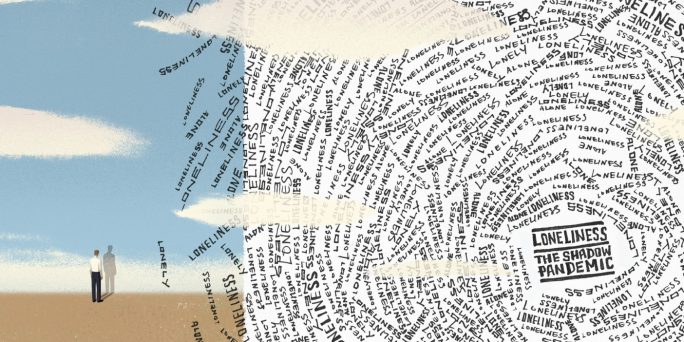In the tapestry of human experience, crises frequently reveal the underlying fabric of our collective psyche. The recent global upheaval triggered by the coronavirus outbreak has not only endangered our physical well-being but has also precipitated an existential crisis characterized by anxiety and isolation. In times of distress, how do we navigate the tumultuous seas of fear and uncertainty? Can we find constancy in a world that seems to be spiraling out of control? The Bahá’í teachings provide a compass, urging individuals to choose love over panic, thereby illuminating a path toward both personal and communal healing.
As we embark on this exploration, we encounter a pivotal question: How can we cultivate love in the midst of fear? The challenge lies in transforming immediate reactions of panic into conscious choices imbued with compassion and empathy. This endeavor involves understanding the core Bahá’í principles, which promote unity, justice, and the inherent dignity of every individual.
The Bahá’í Faith emphasizes the importance of love as a transformative force. Love, in this context, is not merely an emotion but a spiritual imperative that beckons us to transcend our fears. During the coronavirus pandemic, the practice of love manifests through acts of kindness, solidarity, and community support. It compels us to reach out, even from a distance, to neighbors and loved ones, fostering an environment of care in an otherwise isolating reality.
One essential tenet of Bahá’í teachings is the idea of the Oneness of Humanity. In grappling with the pandemic’s repercussions, it is crucial to recognize that we are all interconnected, bound by our shared humanity. Each individual’s struggle reflects a collective hardship; thus, prioritizing love necessitates extending compassion beyond ourselves. As the world grapples with the effects of disease, economic instability, and societal dislocation, the call to empathize with others becomes paramount.
Equally significant is the Bahá’í emphasis on the promotion of justice. This involves not only a commitment to individual acts of love but also engaging in systemic change that addresses the inequities exacerbated by the pandemic. Communities have been disproportionately affected, and it is essential to advocate for those who are often marginalized. Love in action embodies the spirit of justice, urging individuals to confront societal disparities and work tirelessly towards fostering equality.
Moreover, the Bahá’í teachings encourage the development of detachment from material concerns. In a time marked by unprecedented uncertainty, individuals may cling to their material possessions and societal status as means of security. However, cultivating a spirit of detachment allows us to approach life’s unpredictability with grace. This is not to suggest apathy but to harmonize the spirit of love with a profound acceptance of change. In practicing detachment, we unshackle ourselves from the fears that often grip us, rendering ourselves more resilient and open to experiences of love.
In addition to individual transformation, the relational aspect of Bahá’í teachings accentuates the significance of community. The pandemic has necessitated a reevaluation of how communities connect and support one another. Virtual connections have become lifelines, bridging distances, yet physical isolation can also breed emotional desolation. The Bahá’í approach to communal life highlights the importance of fostering bonds through shared experiences, dialogue, and mutual upliftment. During such challenging times, communities must gather—albeit virtually or safely in person—to reinforce love and solidarity among members, making a conscious effort to include every voice in the conversation.
Furthermore, interfaith unity, a fundamental Bahá’í principle, presents an opportunity for collaboration amid tumult. In times of crisis, transcendental insight can arise from diverse spiritual perspectives. Establishing interfaith dialogues can enable communal resilience by uniting various belief systems under the shared commitment to love and service. Such collaborative efforts can amplify relief initiatives and foster a spirit of harmony that transcends sectarian lines. Thus, the practice of love extends beyond individual actions to encompass the sacred duty of bridging communities in times of need.
Integral to the Bahá’í outlook is a profound appreciation of the power of prayer and spiritual reflection. Engaging in prayer invites individuals into a sanctuary of peace, a refuge amid chaos. It nurtures the inner life and offers solace, serving as a reminder of one’s purpose and connection to the divine. Through prayer, individuals can foster resilience, instilling a sense of hope that permeates the trials of existence. By engaging in collective prayers, communities reaffirm their collective commitment to love, providing emotional sustenance to all members.
As we reflect on the manifold implications of the coronavirus outbreak, the Bahá’í teachings proffer timeless wisdom through the lens of love. The spiritual lessons gleaned from this crisis extend far beyond the pandemic itself; they unveil the enduring human potential to choose love over panic. It is incumbent upon us to engage actively in constructing a tapestry of compassion, one that elevates our shared humanity, combats injustice, and nurtures community solidarity. The challenge lies in resurrecting the essence of love within ourselves and extending that love toward others, kindling a collective spirit of hope that can illuminate even the darkest of days.
In conclusion, as we navigate what has unfolded during these tumultuous times, let us reflect on our capacity for love. Each act of kindness, each gesture of empathy, and every dedication to justice serves as an antidote to fear. Through the lens of Bahá’í teachings, we are reminded that even amidst uncertainty, love can be a mighty force for transformation, guiding us towards a future imbued with hope—one we can forge together.
